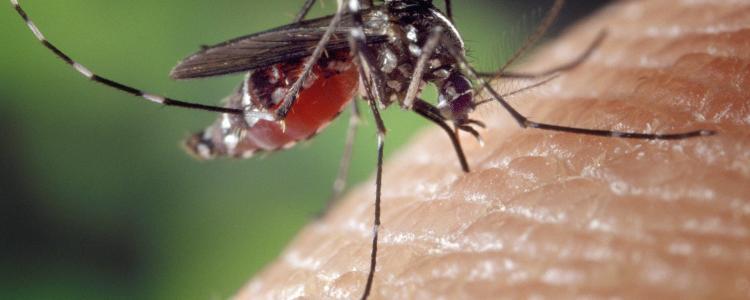Here our travel health experts provide some tips on how to prevent malaria when travelling. By using some simple techniques and the right equipment, you can greatly reduce your chances of a dreaded female Anopheles mosquito choosing to land on you in the first place, thus reducing your chances of actually being bitten accordingly.
Physical barriers are a good place to start. Think clothing and mosquito nets. Long sleeves and full-length trousers are a must in malarial areas, especially in the evenings when Anopheles is most active. A hat or cap is also a good idea as repellent can be applied under the brim to protect the face and the back of the neck. The latest technology has produced clothing such as shirts and trousers with mosquito repellent permanently embedded into the actual fabric. There are even repellent treated hiking socks available which are effective against both mosquitoes and ticks.
A good pre-treated mosquito net is a must for serious backpackers, and a small lightweight one is not a bad idea to toss into a suitcase even for those planning to stay in a hotel, as I have personally stayed in a number of hotel rooms in less-developed countries where the nets provided over the beds have been full of tears and holes.
To protect your skin, 50% DEET (the acronym for the chemical repellent components) is what you want to look for – it has been proven the most effective repellent for mosquitoes currently available today. There are also natural-ingredient repellents for those with sensitive skin. Whichever you choose, diligence in reapplying frequently is essential.
Although everything you do to prevent being bitten is essential, perhaps the most important component in protecting yourself against malaria is the use of antimalarial tablets
Although everything you do to prevent being bitten is essential, perhaps the most important component in protecting yourself against malaria is the use of antimalarial tablets. As there are a number of different types of tablets available, your final selection will depend on the strain of malaria parasite being carried by the mosquito and the level of resistance to drugs that it has evolved at your destination. Your medical history and your budget will also play a part. Its very important to see your GP or travel health clinic nurse and to remember to take your antimalarials exactly as directed – not forgetting to complete the course after you have returned from your holiday.
You may be wondering at this point, why the emphasis on continuing to take the tablets after your return? There aren’t any Anopheles in South East England, after all. The reason is this; the parasite which infected the mosquito can take up residence in your liver and lie dormant for anywhere from a week to a month and for some strains up to a year. Where the repellent sprays, creams and mosquito nets are preventing you from being bitten, the antimalarial tablets really come into play after the fact, therefore it is in your best interests to finish the course after leaving the malarial area.
How much should you worry about all this?
Remember, it only takes one bite from an infected mosquito. So, my advice is to take all the easy and reasonable precautions outlined above, then relax and forget about it all, and make the most of your holiday!


No Comments
Be the first to start a conversation